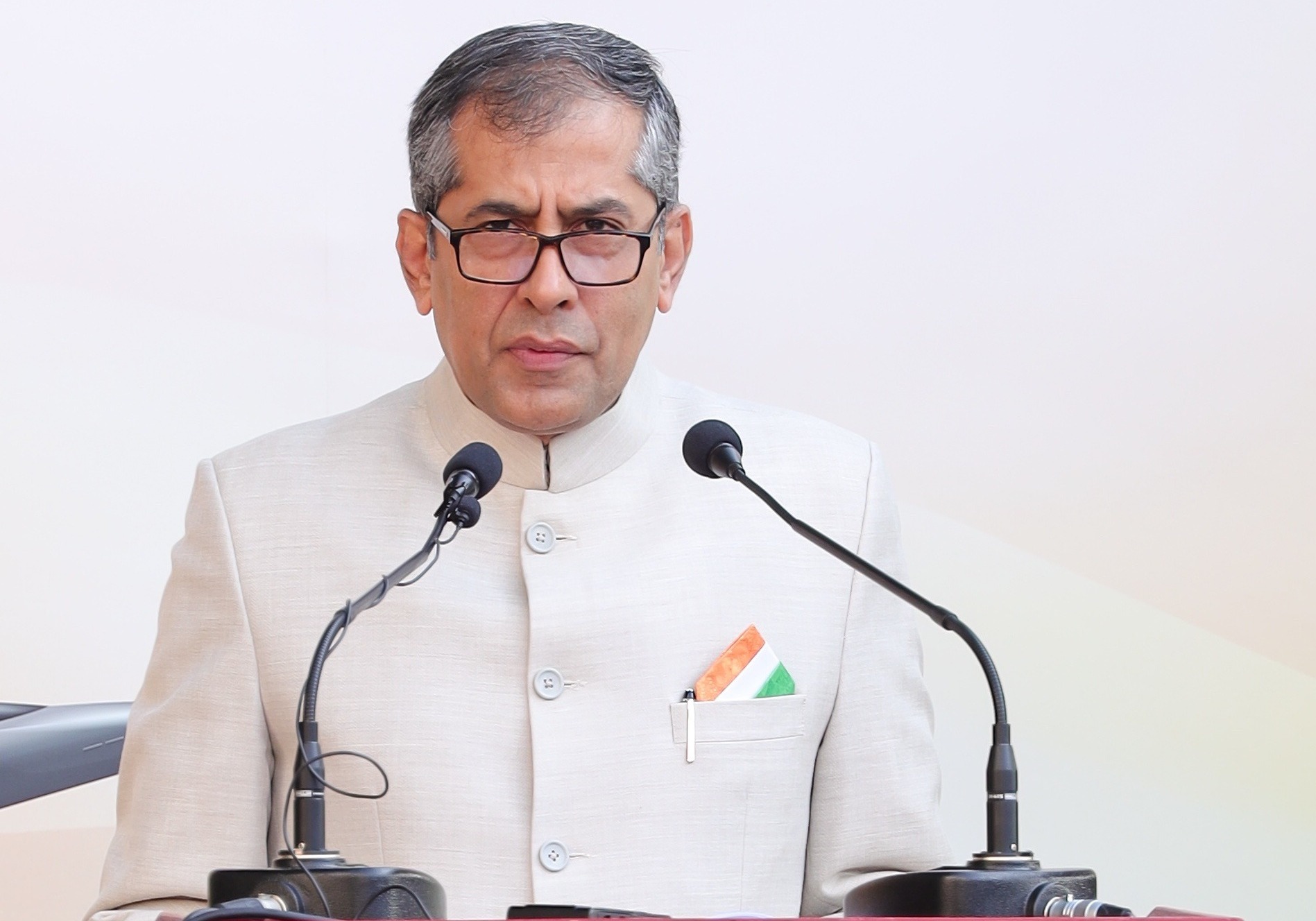DUBAI: The Asian Business Leaders Forum Talks Virtual Conclave met on Tuesday, with speakers discussing globalization, the COVID-19 pandemic and overcoming times of crisis.
One of the speakers was India’s ambassador to the UAE, Pavan Kapoor, who believed that leaders should be adaptive during challenging times. He said it was important for them to be open to collaboration and working with others, especially in the face of the current pandemic because it had negatively affected everyone.
“I think certainly leaders need to be much more agile, they need to be flexible, they need to adapt to situations which they may have foreseen or not foreseen,” he told delegates.
He said that effective leadership must include the understanding that mistakes “can be made” in order to maintain rapport and trust with the public, and he touched on the UAE’s work with India in several sectors such as the repatriation of Indian citizens and economic cooperation.
The Gulf country imports sizable amounts of food from India but, despite national lockdowns on travel, exports were not affected.
“We ensured that even when there was a lockdown in India food supplies kept coming from India to the UAE,” Kapoor said.
The two countries were working on a food corridor and had also cooperated on coronavirus vaccines, the ambassador added.
“We were able to send about 200,000 doses of the made in India AstraZeneca vaccine.”
The president and CEO of the China State Construction Engineering Corporation, Yu Tao, said the pandemic may actually speed up advancement in the construction industry, which had traditionally been more conservative.
He said there were three technologies that would help the industry – automation, digitization and offset fabrication – and that the sector’s recovery would be beneficial to the overall economy, especially after the effects of COVID-19.
The pandemic and international suspension of travel have affected the global economy and globalization, causing several countries to reconsider their reliance on imports and exports.
But co-founder and CEO of Zoho Corporation, Sridhar Vembu, said that globalization was suffering even before the spread of COVID-19.
“Globalization faced challenges before the coronavirus pandemic. I would say imbalances in the world are one of the obstacles.”
He explained that imbalances in terms of exports and imports may affect the policies that countries decided to adopt, and that the issue had started since the 2008 global financial crisis.
“When you are a trade-dependent nation you have to look at what to do, how should they act if other countries become more protectionist. The balancing act in the global economy of export and import could look like protectionism in the beginning. You have to look at it country by country on how to resolve the economic issues caused by the pandemic.”
Not all sectors of the economy were equally affected by the pandemic though, with some having to speed up their operations in order to meet the increase in demand. One example, the event heard, was the medical sector.
Co-chairperson of the UAE’s Zulekha Healthcare Group, Zanubia Shams, talked about how the pandemic had affected the business.
“A lot of our operations have changed a little bit. We had a lot of worry when COVID-19 just hit,” she said. But digitization and the agile diffusion of information had helped the company to stay afloat, especially the speed of the UAE’s Ministry of Health distribution of research and findings to healthcare facilities.

Asian Business Leadership Forum launches virtual venueUAE announces $8.2bn stimulus for companies in industrial sector

